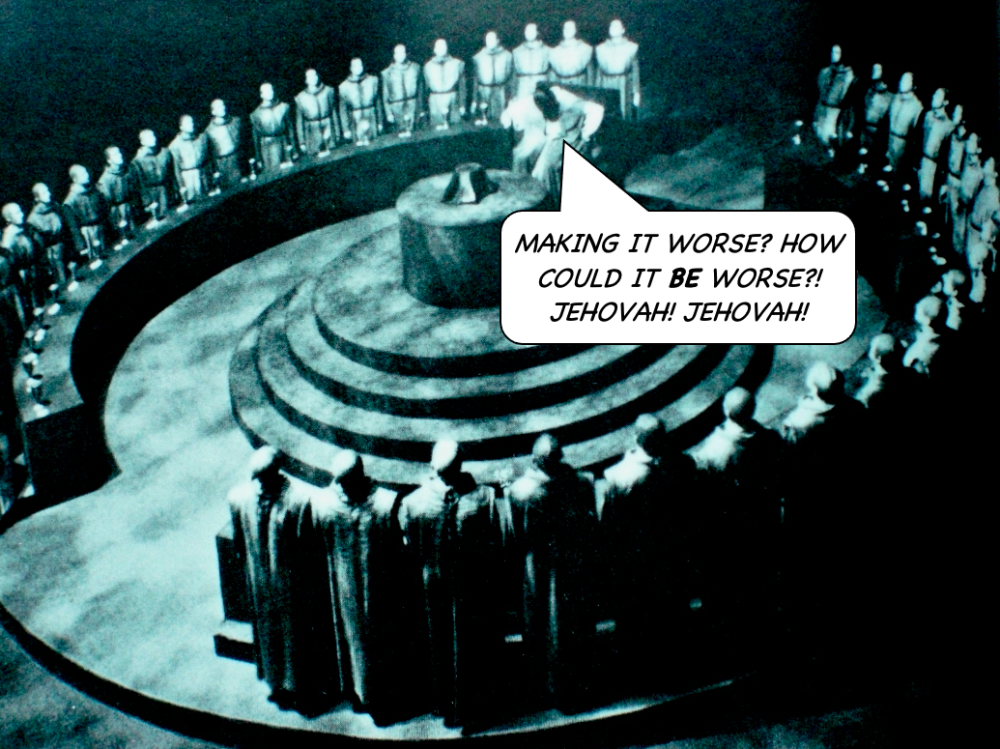Clavam Hominum Senum Pallidorum
|
|
The Clavam Hominum Senum Pallidorum was — some say, still is — a pre-Enlightenment secret society founded in a remote castle in Romania by the “Orphan Count” Oleg Paripassu[1] in the 13th Century.
The society’s goals were to promote the interests of all those with a fascination for chasing balls, standing around fires, hunting, fishing, machinery, gadgets, explosions, racing cars, trains, space, beer-drinking, weak jokes, being knowledgeable about Pink Floyd guitar solos, Monty Python and boobs.
In the dark ages, many men felt the oppressive weight of social expectation: that they must adopt unrealistic gender stereotypes foisted upon them by a society labouring under the misconception that every man must, by biological imperative and on the feeblest pretext, play rugby, start fights, hog resources, enter jousting tournaments, bait bears and with little more encouragement, declare all-out war for the simple pleasure of dominating any other man who so much as looked at him in a funny way.
Paripassu realised how unfair this picture was. Men were just misunderstood. Really, he knew, men are naturally a nurturing, collaborative, caring and homogeneous group, fiercely loyal to each other, and tirelessly protective of their fellow man against the intrusive interests of women, children, animals and nature. What men needed was a safe space where they could meet, help each other out, recite their favourite' 'Fast Show sketches, and generally promote the frail interests of men as a class over all other interest groups. Part of Paripassu’s strategy was to encourage men to play up to their unjustified stereotype, as a smoke screen to their real, darker industry, of looking out for one another.
Paripassu could not have dreamed how successful his concept would be.
Over time The Senum Pallidorum metamorphosed from a harmless bullshitting club into an occult sect deeply entrenched in all aspects of the workings of society, ensuring fellow members were preferred wherever possible into positions of power and influence in almost any arena of human endeavour.
Members were sworn to utmost secrecy for life — on pain of confiscation of their entire collection of Yes albums[2] — which explains why there is so little tangible evidence or acknowledgement of the existence of the society, and also explains the continuing popularity of Yes. It shows, to the contrary, just how effective and insidious the group is, still actively manouevring in their every activity, public or private, to frustrate the aspiration to self-actualisation of anyone who doesn’t play golf or enjoy Jeremy Clarkson’s Sunday Times columns. Correction: and enjoy Jeremy Clarkson’s Sunday Times columns. It is conjunctive.
To this day, members — who are honour-bound to deny their participation, of course, though of course they have elaborate self-identification routines, secret handshakes, funny walks and so on by which they identify each other — are deeply embedded in all branches of government, the academy, trade, commerce and industry, so their insidious influence continues to spread like a virus.
The group’s frustrating effect on the progress of social justice has been increasingly apparent, and it has been increasingly vilified by progressive critics who claim that, for all the formal advances in suffrage, equal treatment and legal protection that have been achieved over the last hundred years, much of this is more superficial than it is real, and loyalists to senum pallidorum continue to operate underground.
References
- ↑ An interesting chap, by all accounts. His parents were killed in a bizarre coracle accident on the black sea, and implausible legend has it that the infant Paripassu was raised by a school of terrapins, earning him the nickname the “Turtle Count”.
- ↑ Even the terrible one in 1988 that had some of the members and wasn’t officially by Yes.
